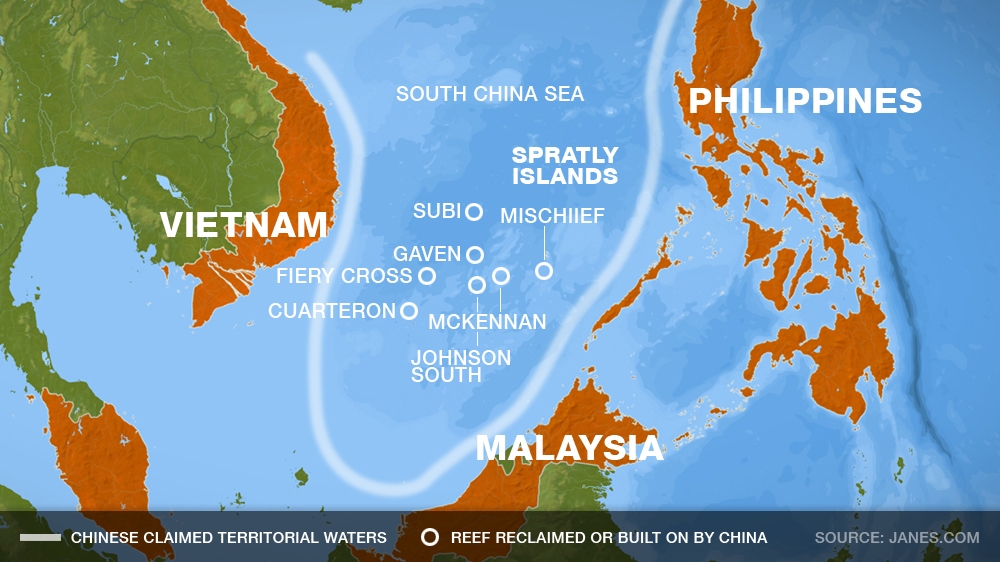Obama in Vietnam backs peaceful South China Sea
US not trying to impose its form of government and disputes with China must be resolved peacefully, US president says.

The US is not trying to impose its form of government on Vietnam and territorial disputes in the South China Sea have to be “resolved peacefully”, President Barack Obama has said during a three-day visit to the country.
In a speech at the National Convention Centre in Hanoi on Tuesday, Obama also called for better human rights that would boost the country’s economy, stability and regional power, for opening a new chapter in their relations and for helping both countries to move on from a history of war four decades ago.
|
|
“Big nations should not bully smaller ones, disputes should be resolved peacefully,” he said, referring to the disputed maritime region.
The US and Vietnam have drawn closer together through their mutual concern at China’s increasing assertiveness in the sea.
China claims almost all the South China Sea and has upset neighbours with a series of reclamation and construction projects – including airstrips – on reefs and islets.
Vietnam and four other countries also have claims to parts of the sea.
Freedom of navigation
The US takes no position on the competing territorial claims but asserts freedom of navigation and flights in the sea and has sent warships near Chinese-held islets.
“As we go forward the United States will continue to fly, sail and operate wherever international law allows and we will support the right of all countries to do the same,” Obama said.
Al Jazeera’s Adrian Brown, reporting from Beijing, quoted the Chinese media as accusing Obama of engaging in a strategy to try to contain China.

“Yesterday the spokeswoman at the Ministry of Foreign Affairs, during her daily press briefing, said that China welcomes the fact that the Vietnam and US were now enjoying better relations, but I think, in a roundabout diplomatic way, China was basically saying if the US is going to lift the arms embargo against Vietnam, then why not lift the arms embargo against China,” he said.
“Obama also talked about focusing on future and part of that future is what is happening now in the South China Sea.
“The US believes that allowing Vietnam now to buy weapons will perhaps embolden Vietnam in pressing its claims. That is certainly what China fears.”
Arms embargo lifted
On Monday, Obama announced that he was removing a Cold War-era ban on weapons sales to Vietnam, seen as a major boost for Hanoi as it tries to bolster its defences against its giant northern neighbour.
“Vietnam will have greater access to the military equipment you need to ensure your security,” he told delegates.
He said the US would continue to train Vietnam’s coastguard to “enhance maritime capabilities”.
Obama spoke to 10 activists on Tuesday, including advocates for the disabled, sexual minorities, a pastor and advocates for freedom of speech, press and the internet, but he said that several others were prevented from coming.
Interactive: Islands row around China
“Vietnam has made remarkable strides in many ways,” Obama said, but “there are still areas of significant concern”.
During a Monday news conference with Vietnam’s president, Obama traced the arc of the US-Vietnamese relationship through cooperation, conflict, “painful separation” and a long reconciliation.
“If you consider where we have been and where we are now, the transformation in the relations between our two countries is remarkable,” Obama said.